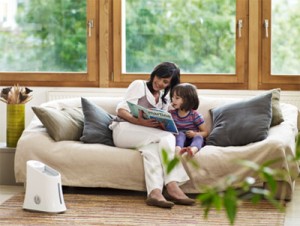USEFUL WINTER COMFORT TIPS
USEFUL WINTER COMFORT TIPS
By Dr. Trisha Macnair
There are many things you can do to feel more comfortable with indoor air. Dr. Trisha Macnair, a Hospital Doctor inSurrey,UK, recommends:
- Aim for a clean atmosphere that is a comfortable temperature and humidity.
- Make sure your home is well ventilated – even though it is tempting to shut out the cold winter air, throw windows open at least once a week or more to provide a regular supply of fresh air.
- Keep all gas fires, cookers, burners and chimney flues regularly serviced or swept to avoid blockages or the build up of dangerous gases.
- Don’t overheat your home even when it is very cold outside – the ideal temperature should be around 20° C. If you feel cold at this temperature, then put on another layer of clothing rather than turning the heating up.
- Central heating can dry out the air very quickly in the winter. Buy a hygrometer to measure humidity and use a humidifier if the RH level is lower than the recommended 40-60%.
- Make sure all chemicals (such as cleaning agents) are properly contained and safely stored, ideally outside the home in a shed or a garage.
- Vacuum and dust your home regularly to remove dirt and house dust which can build up very quickly, and keep down the numbers of house dust mites (microscopic insects found in every home, which can cause allergy problems).
- Frequently wash touched surfaces like doorknobs, phones and light switches, where the viruses responsible for colds and flu can be deposited and then spread from person to person.
- Make sure the dampest areas of the house, such as the bathroom are especially well ventilated to prevent humidity rising so high that mould and other micro-organisms can proliferate.
- Limit sources of pollution in your home, including cigarette smoke and chemicals. Use exhaust fans whenever cooking, using the dishwasher, and cleaning in food service areas to get rid of irritant vapours and smells.
- Use a purifier to help provide cleaner air and remove airborne particles that pass through the filter.
- Try to keep pets outdoors if possible. This can help reduce exposure to pet allergens indoors.
- Keep your body well hydrated – we need to take in about 1ml of water for every calorie we burn, so about 2500ml for men and 2000ml for women (remember we get some of this water from the food we eat). You need more if you exercise.
- Keep your skin well moisturised to prevent it drying and cracking. Older people may need to apply moisturiser daily to arms, legs and head.
- If you develop a respiratory infection such as a cold or flu, drink extra fluid, make sure to moisturise lips and nostrils to prevent cracking, and seek medical help sooner rather than later if you develop breathing problems.
About the Author
Dr. Patricia Macnair (MB ChB) is a hospital doctor with many years of experience. She is currently working with the elderly recovering from major illness in a small rehabilitation hospital inSurrey,UK. Dr. Macnair is a spokesperson for Kaz Europe SA. Kaz develops and markets branded consumer health care devices and home comfort appliances including the Honeywell range of humidifiers and purifiers.


